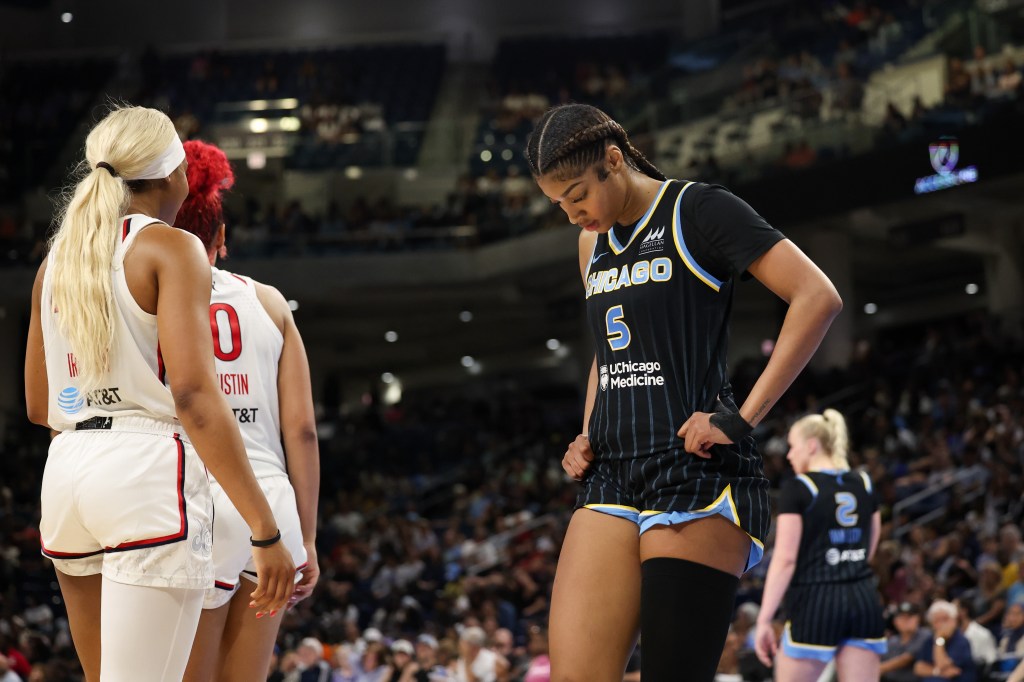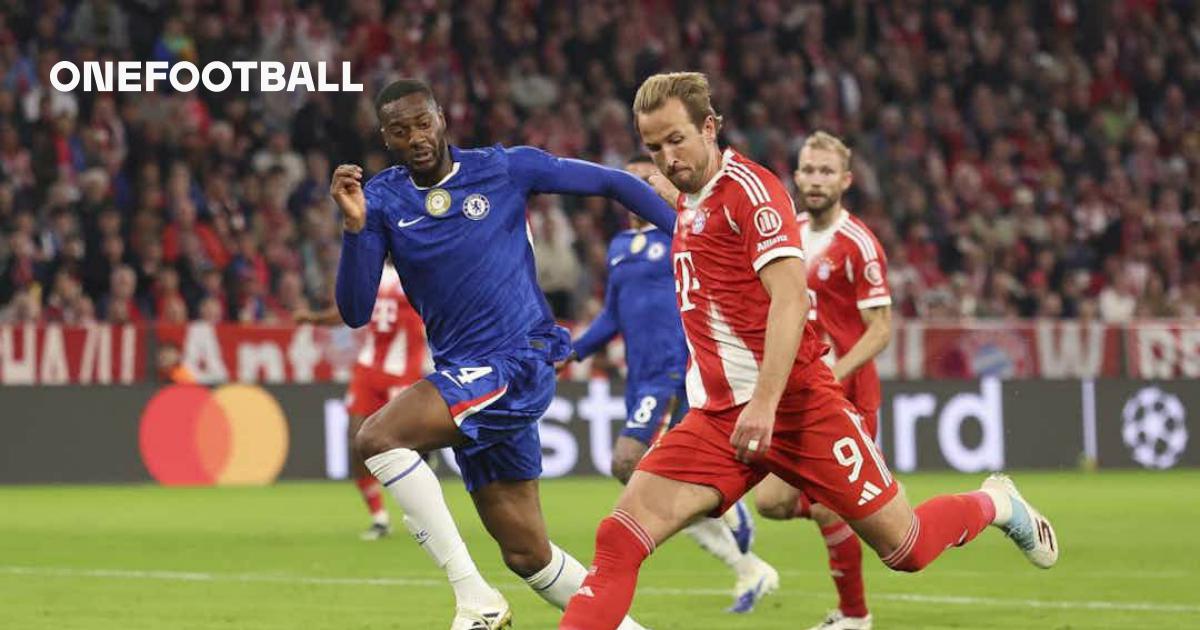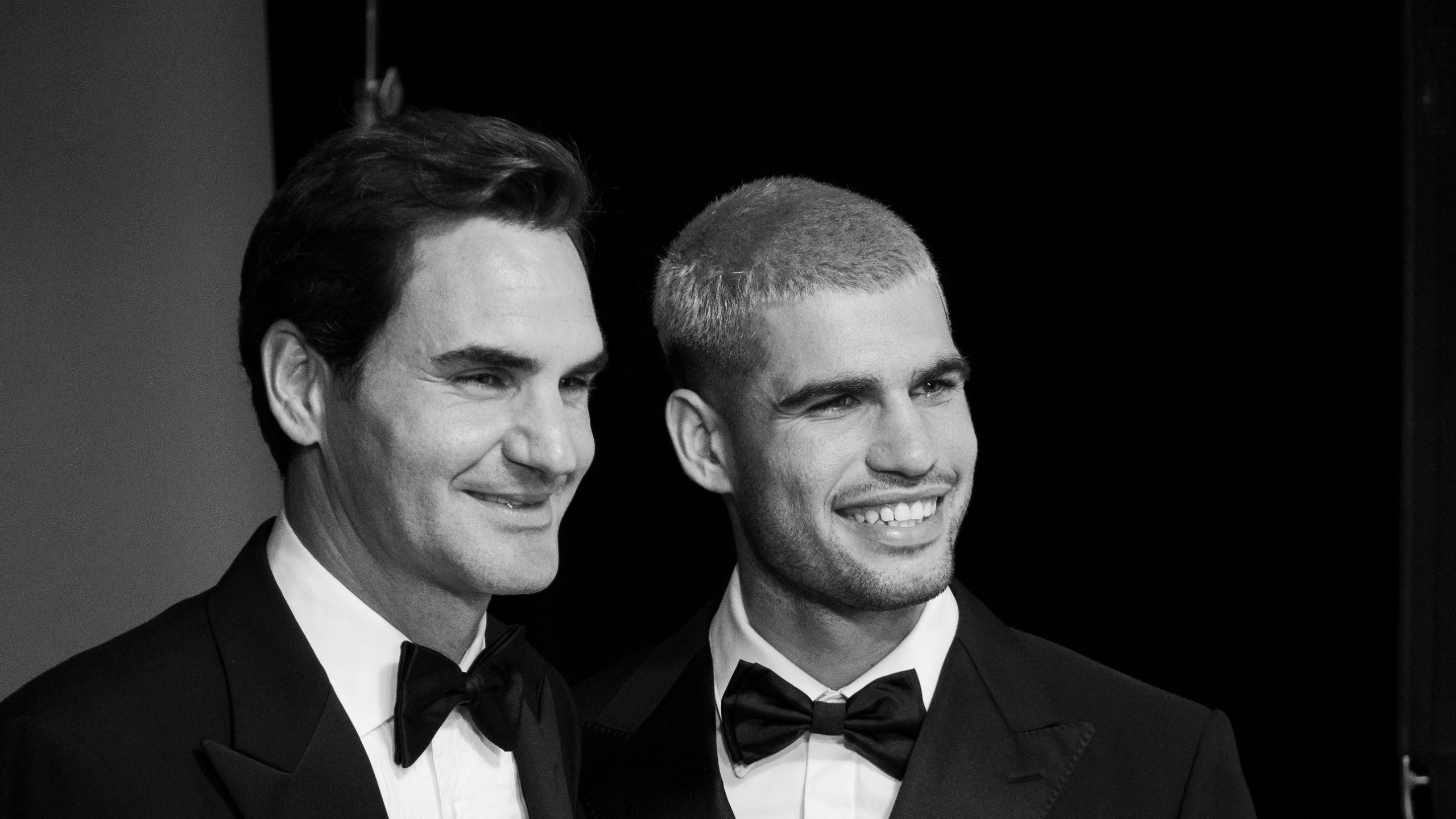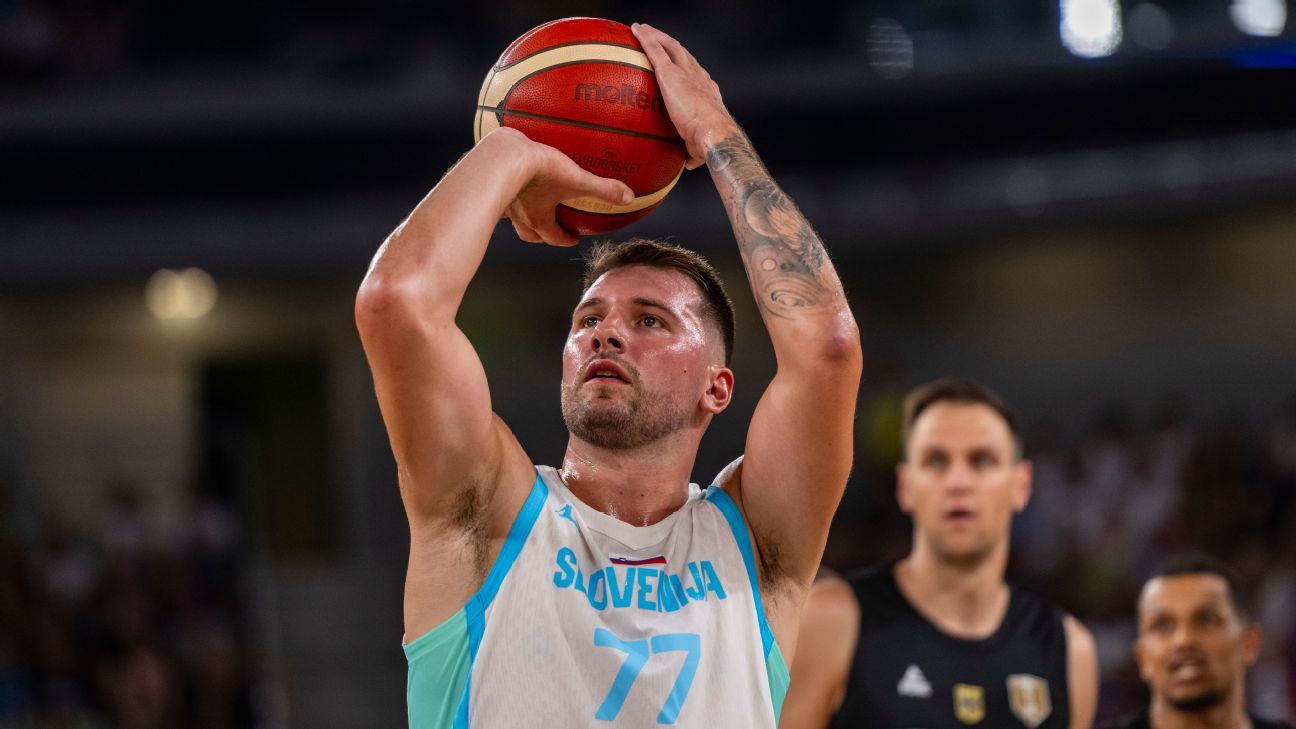
Midway through the third quarter of Tuesday’s collapse against the Washington Mystics, the Chicago Sky barely could get the ball over the half-court line without committing an error.
Rachel Banham failed to step forward into a pass from Ariel Atkins, allowing Sonia Citron to snag the ball from midair. Kamilla Cardoso bobbled an entry pass off her chest and into the hands of Stefanie Dolson. Hailey Van Lith attempted to switch the floor on a skip pass and instead chucked the ball out of bounds over the head of a cutting Elizabeth Williams. By the end of the quarter, the Sky had tallied more turnovers (nine) than made baskets (five).
The Sky lead the league in turnovers per game (18.7) and opponent points off turnovers (20.5). A staggering 23.4% of the Sky’s offensive possessions result in a turnover. This weakness ballooned into a full-on crisis against the Mystics as the Sky hemorrhaged points, giving up 40 on 22 turnovers — 1.8 points per.
This isn’t the first time turnovers have upended an otherwise promising Sky performance. At this rate, it won’t be the last. And frustration is setting in for the most mistake-prone team in the WNBA.
“We spoke about it before the game,” coach Tyler Marsh said. “It feels like it’s been redundant. We’ve talked about it pretty much every game, of how important it is to take care and value basketball and when you don’t, you have nights like this.”
There’s an obvious excuse to reach for here. The Sky (3-8) are a less effective facilitating unit without starting point guard Courtney Vandersloot. Any team would see a precipitous drop in creativity and efficiency following a season-ending injury to one of the best point guards in the league.
But here’s the concerning thing for the Sky: The turnovers started long before Vandersloot went down with a torn ACL in her right knee. The Sky already led the league in the statistic before June 7. In the four games since their veteran captain’s injury, the Sky have averaged 19 turnovers. In the six games prior, they averaged 18.2.
Forward Angel Reese leads the Sky in turnovers, a change in her performance that highlights a larger difference in the offense. Reese averaged 2.2 turnovers as a rookie last season. That number has nearly doubled to 3.9 this year.
The spike is a reflection of her revamped role as a point forward, a shift that pulls Reese farther from the basket and places the ball in her hands with a higher responsibility to facilitate as the Sky attempt to balance the court with Cardoso in the post. (Reese also has doubled her assists, from 1.9 per game last season to 3.6 this year.)
“I know I’m trying to make great plays and I’m looking for the right pass and I’m trying to relieve my guards and get the open pass,” Reese said. “I got to do better and that’s on me. I’m going to take that. Because they scored 40 points off of our turnovers and seven of those were mine. That’s unacceptable.
Angel Reese and the ‘mebounds’ myth: How Chicago Sky star is turning an (inaccurate) insult into a brand
In many ways, Reese serves only as a bellwether for the Sky offense. Turnovers are a symptom of a more extensive problem. The two main causes are fairly simple — individual error and system stagnation — but figuring out how to fix them is far more complicated.
Marsh labeled many of the turnovers Tuesday as “careless” errors created by sluggish passes, indecisive off-ball movement and miscommunication among players. From the outside, this carelessness made the Sky look apathetic on offense for most of the second half, a characteristic of many losses this season.
This says more about the Sky’s discipline than anything else. In a vacuum, individual error is reflective of a player’s mindset and mentality. But when the mistakes pile up with consistency, the pattern reflects a teamwide problem.
Photos: Chicago Sky fall to Washington Mystics at Wintrust Arena
This doesn’t necessarily communicate locker-room strife. The Sky are a cohesive team that has maintained relative stability in top-to-bottom buy-in for Marsh’s system. But that general congeniality isn’t translating to on-court discipline, a crucial problem for Marsh to grapple with as a first-year coach.
At its core, this undisciplined play stems from a stagnant style of offense. Van Lith, a rookie, noted that the Sky struggled to establish off-ball movement in the opening weeks of the season, which allowed opposing defenders to lather pressure onto point guards at a high point of attack.
The Sky struggle to get the ball spread out to the wings and down into the corners, which creates crowded passing lanes. And when the guards start turning the ball over, they also stop taking 3-pointers — which causes the paint to get clogged, begetting a vicious cycle.
Every position group has taken accountability for this pattern. But without Vandersloot, facilitating guards such as Van Lith and Atkins will be on the front lines of navigating out of the weakness.
“We’ve got to get a better flow,” Atkins said. “If we can’t get the ball to the wing, there is no offense and then you got us just pounding the ball top. We got to do a better job as (point guards) bringing it down and making things easier for everybody. If we can’t get open on the wing, or if I can make a pass off the top, like, we just make our life so hard.”
Some of these habits can be curbed by improvements from Marsh and his coaching staff, who are still tweaking the blueprint for the offense to improve movement and decisiveness on the perimeter. Creating more space for Van Lith, Atkins and other guards — especially through off-ball screens and weak-side sets — will be a key focus in the upcoming stretch.
But the intangibles are just as important. Protecting the ball means slowing down mentally and taking fewer risks. For players, this means staving off desperation during close-game situations.
One thing is clear: Until the Sky can secure the basketball, their season is destined to continue its freefall toward the bottom of the WNBA.
#Chicago #Sky #lead #WNBA #turnovers #game #Whats #problem






